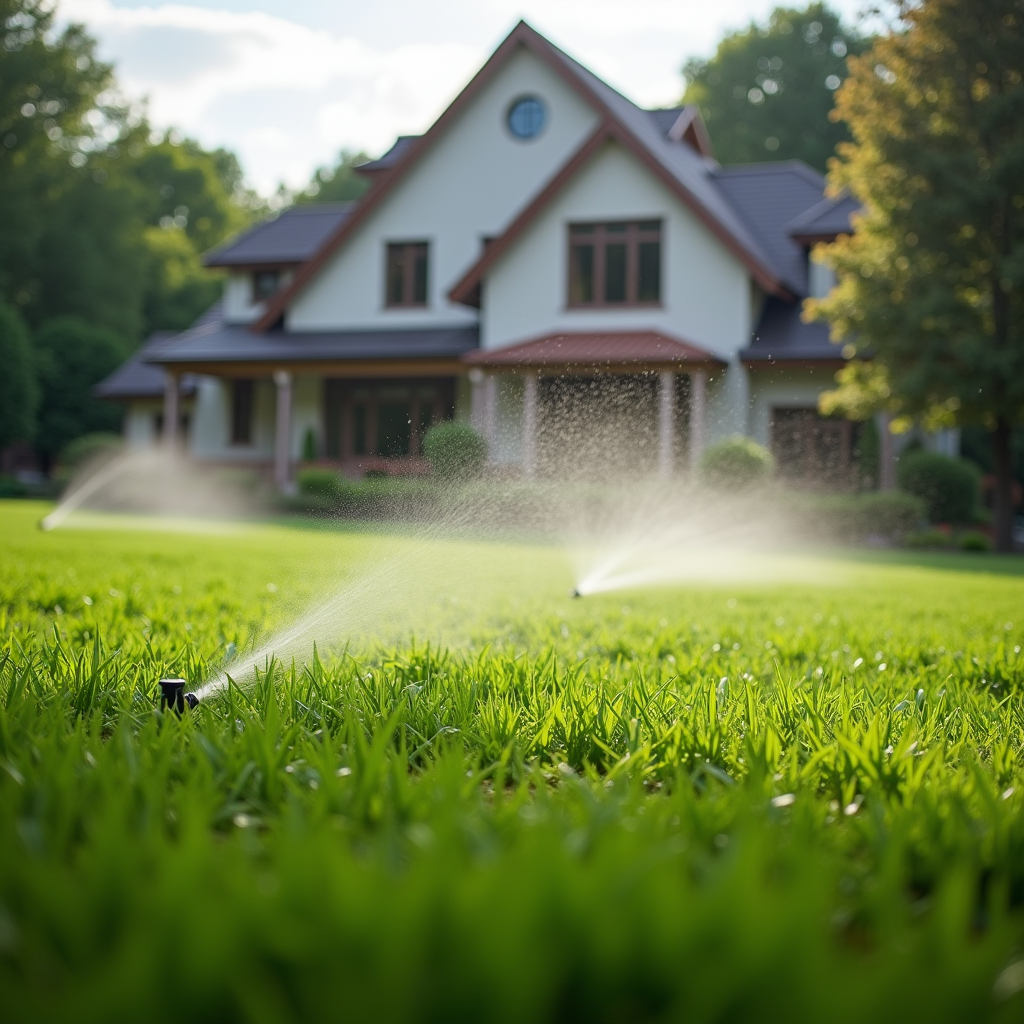Introduction
In today's fast-paced world, where stress and anxiety often seem to loom large, the significance of maintaining mental well-being cannot be overstated. One intriguing avenue that has emerged in recent years is the relationship between landscaping and mental health. More than just a chore or a hobby, landscaping encompasses a broad spectrum of activities that can profoundly impact our psychological state. But how exactly does it work? What elements of landscaping contribute to improved mental health? In this comprehensive article, we will explore "The Connection Between Landscaping and Mental Well-being" from various perspectives, delving into the science behind it, practical applications of lawn care, and tips for creating your own therapeutic green spaces.
Understanding Landscaping: A Gateway to Serenity
What is Landscaping?
Landscaping is a multifaceted practice involving the design, modification, and maintenance of outdoor spaces. It includes everything from planting trees and shrubs to arranging pathways and water features. The goal is not merely aesthetic; effective landscaping creates an environment that enhances our daily experiences.
Why Should We Care About Our Outdoor Spaces?
As humans, we have an innate connection to nature—a phenomenon known as biophilia. Our outdoor spaces serve as vital extensions of our living environments, influencing both our moods and behaviors. Engaging with these spaces allows us to forge deeper connections with nature while providing an outlet for creativity.

The Psychological Benefits of Green Spaces
A Calm Mind through Nature Exposure
Spending time in nature has been linked to reduced levels of cortisol—the stress hormone—leading to lower anxiety levels. Various studies indicate that even short walks in natural settings can significantly enhance mood and cognitive function.
Nature as a Stress Reliever
Imagine coming home after a long day at work to find a lush garden waiting for you. The vibrant colors, soothing sounds of rustling leaves, and aromatic scents can whisk you away from daily stressors. Landscaping acts as an effective buffer against life's pressures.
Research Findings on Nature's Effects on Mental Health
- A study published in Environmental Science & Technology found that spending just 20 minutes in green spaces resulted in noticeable improvements in mood. Another research piece highlighted that individuals who engaged in gardening reported higher levels of happiness compared to those who did not.
Lawn Care: A Therapeutic Outlet
The Role of Lawn Care in Mental Well-being
Lawn care might seem mundane or even tedious to some, but tending to your lawn can be remarkably therapeutic. The rhythmic actions involved—mowing, raking, watering—can induce a meditative state akin to mindfulness practices.
How Lawn Care Encourages Routine and Responsibility
Engaging in regular lawn care tasks fosters a sense of responsibility and routine. This predictability can ground us during chaotic times while giving us something tangible to focus on.
Creating Your Own Therapeutic Landscape
Designing Green Spaces for Mental Wellness
When designing landscapes with mental well-being in mind, consider implementing natural elements such as:
- Water features: Fountains or ponds can create calming sounds. Colorful plants: Bright blooms evoke joy and attract beneficial wildlife. Pathways: Create meandering paths encourage exploration and reflection.
Mindful Gardening Techniques
Mindful gardening encourages individuals to immerse themselves fully in the experience:
Use all five senses—notice the textures of bark or the scent of flowers. Focus on each action—be present while digging or planting seeds. Reflect on thoughts or feelings during these activities.The Connection Between Landscaping and Mental Well-being: A Case Study Approach
Real-life Examples of Healing Gardens
Many hospitals have embraced healing gardens designed specifically for patient recovery:
- These gardens feature calming plants like lavender and chamomile known for their soothing properties. Patients report feeling more relaxed when surrounded by greenery during recovery periods.
Community Gardening Initiatives
Community gardens provide social interactions that further boost mental health:
- They promote teamwork among participants while fostering communal ties. Additionally, they allow individuals to share skills related to gardening and landscape maintenance.
Barriers to Engaging with Landscapes
Overcoming Common Obstacles in Lawn Care
While there are many benefits associated with landscaping and lawn care, some people may find barriers preventing them from engaging:
Lack of time Physical limitations Knowledge gapsSolution: Seek community support! Local gardening clubs often provide resources tailored for various skill levels while encouraging social interaction.
Seasonal Changes: Embracing Nature Year-Round
Understanding Seasonal Effects on Mental Health
Each season offers unique advantages when it comes to landscaping:
Spring brings renewal—a fresh start filled with blooming flowers. Summer invites outdoor gatherings amidst lush greenery. Autumn presents opportunities for harvesting crops while enjoying picturesque foliage. Winter serves as a time for reflection—consider evergreen plants that maintain serenity throughout colder months.Integrating Mindfulness Into Lawn Care Practices
Practical Tips for Mindful Lawn Maintenance
To cultivate mindfulness https://backyardbliss4.gumroad.com/p/enhancing-your-backyard-oasis-landscaping-ideas-for-greensboro-a83fad9b-2ac3-45e2-9031-83de709a2610 through lawn care:
Set aside dedicated time each week solely for lawn maintenance. Limit distractions—leave your phone indoors if possible! Pay attention to your breath as you work; let it guide your movements.Integrating Art into Landscaping Design
Artistic Approaches That Promote Peace
Art can play an integral role in enhancing landscapes:
Sculptures serve as focal points within gardens. Murals can add color while reflecting personal stories or cultural history. Incorporate natural materials such as stones or wood carvings crafted by local artisans!Landscaping Therapy: A Growing Field
Therapeutic Landscapes Designed by Professionals
Landscape architects increasingly recognize the mental health benefits associated with thoughtful design:
- Therapists now advocate therapeutic landscapes tailored specifically for clients seeking relief from emotional struggles.
Example Projects
| Project Name | Location | Purpose | |--------------|------------------|--------------------------------------| | Serenity Garden | City Hospital | Patient relaxation | | Community Oasis | Urban Neighborhood | Social engagement & wellness |
FAQ Section
1. How does landscaping improve mental health?
Landscaping promotes relaxation through exposure to nature, reduces stress hormones like cortisol, and encourages physical activity—all factors contributing positively towards improved mental well-being.
2. Can lawn care be considered therapy?
Absolutely! The repetitive motions involved in lawn care can act meditative while offering physical exercise benefits too!
3. What types of plants are best for enhancing mood?
Brightly colored flowers such as sunflowers or daisies are excellent choices alongside fragrant herbs like lavender which has calming properties known scientifically!

4.Can I create therapeutic landscapes on my own?
Of course! Start small; select areas around your home where you feel most comfortable then gradually expand upon them using mindful principles outlined earlier!
5.Do I need special training for proper lawn care?
While basic knowledge helps immensely (like understanding seasonal growth patterns), many resources exist online today aimed at beginners eager about learning best practices!
6.Is community gardening beneficial socially too?
Definitely! Community gardens foster connections among residents promoting teamwork cooperation leading toward shared goals benefiting everyone involved!
Conclusion
Ultimately,"The Connection Between Landscaping and Mental Well-being" encompasses much more than mere aesthetics—it reflects our intrinsic bond with nature itself! Through thoughtfully designed spaces tailored toward personal preferences alongside mindful practices employed regularly may yield substantial benefits towards enhancing overall quality-of-life experiences! So get out there—dig into some dirt today; nurture both yourself AND those beautiful green surroundings awaiting transformation within reach!